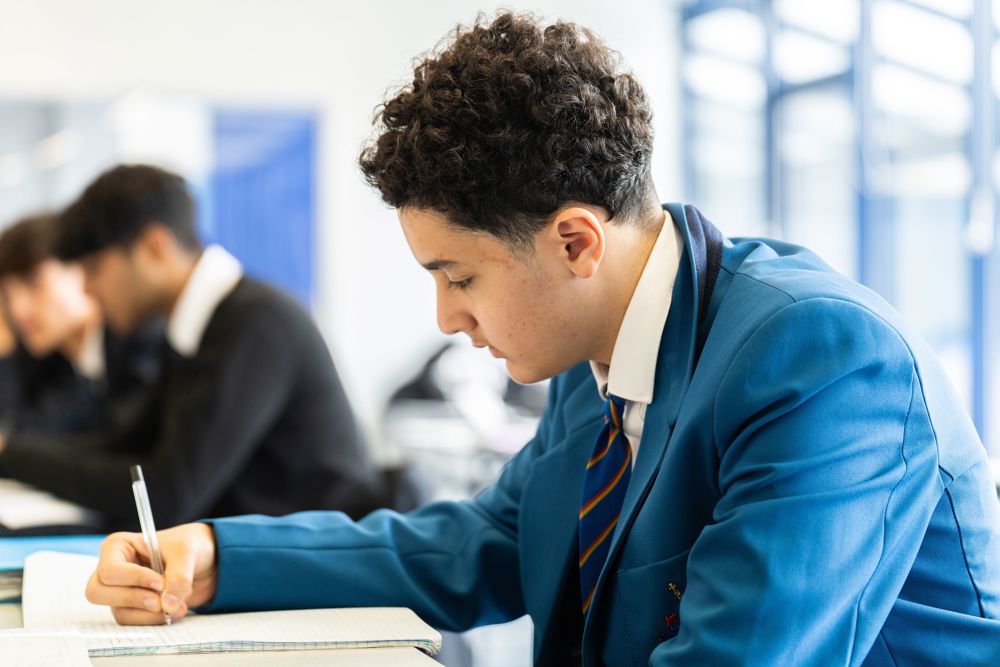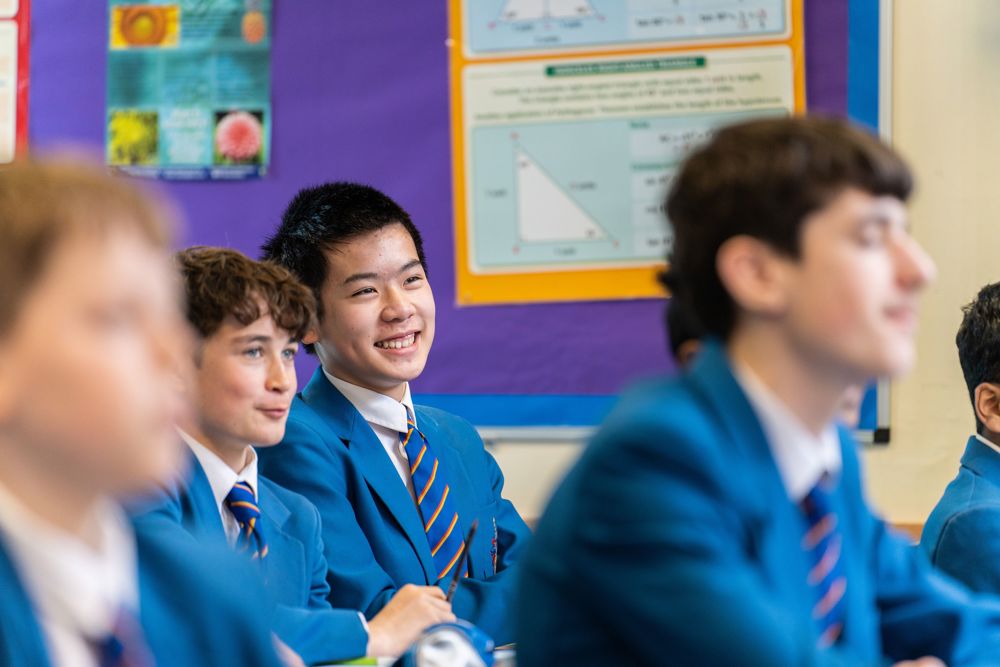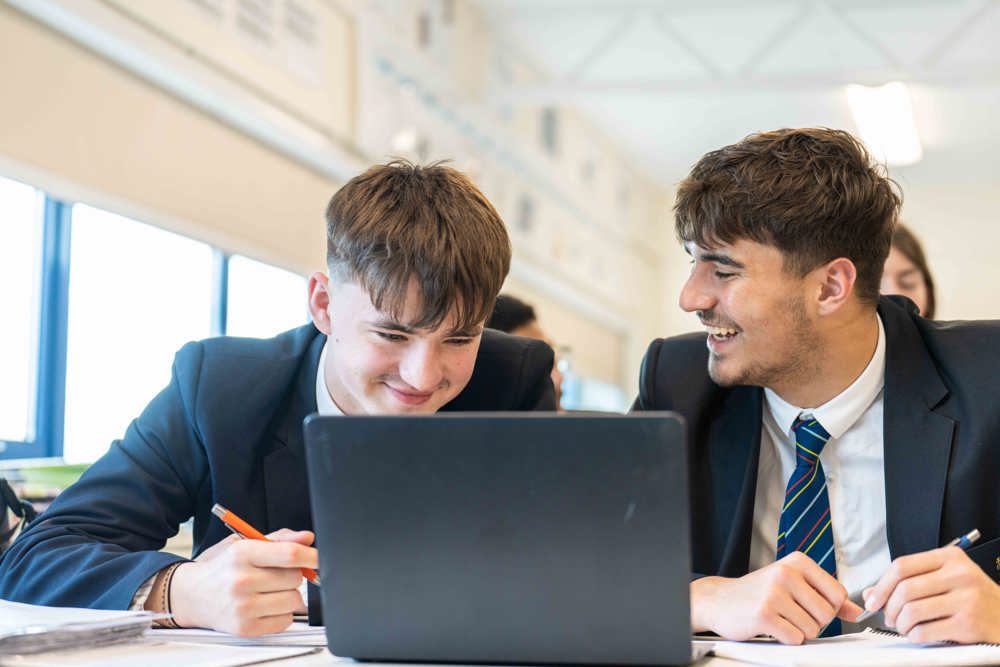
Our Curriculum
At Sir Thomas Rich's our broad, balanced and rich curriculum inspires critical thinking, promotes independent learning and instils a lifelong passion for knowledge. Teachers who are subject experts ensure our able pupils have access to the best that has been thought, said and written; students are encouraged to question, to challenge the established orthodoxies, and to develop their intellectual curiosity.
Our curriculum aims to equip pupils with self-discipline, thinking skills, reslience, behaviours for learning as well as core knowledge and understanding. A diagram detailing these curriculum aims can be found at the bottom of this page.
Pupils are further prepared for adult life by following our tailored citizenship and personal development programmes, through which we offer sound social, moral and spiritual guidance. We take care to emphasise the fundamental British values of democracy, the rule of law, individual liberty, and mutual respect and tolerance of others’ beliefs. We offer outstanding pastoral support and extensive extracurricular opportunities, and consequently pupils flourish in a positive environment of support and encouragement.
Communication with families is important to us, and parents are kept well-informed about their child’s progress through regular updates, parents' evenings and school reports. In addition, Heads of Year are available to parents to discuss any academic or pastoral concerns or questions at any time.
Key Stage 3
In Years 7, 8 and 9 an enriched National Curriculum provides the breadth of study pupils need before starting their GCSE courses.
Year 7
English (Language and Literature), Mathematics, a Modern Foreign Language (one of French or German), Technology (including D & T and Food Technology), Science, Computing, Geography, History, Art, Music, Philosophy & Theology (RE), PSHE and Citizenship, Drama, PE and Games.
Year 8 and 9
Subjects are Year 7, with the exception of Science, which is studied as the three separate disciplines of Biology, Chemistry and Physics in Year 9. An additional Modern Foreign Language may also be started in Year 8, along with Careers lessons.

Key Stage 4
In Years 10 and 11 most students study 10 full course GCSEs and one short course GCSE. These are chosen from a wide range of core and option subjects. Care is taken to provide breadth and balance, avoiding specialising too early. Part of the week is also devoted to non-examination subjects: Personal, Social, Health and Citizenship Education (PSHE), PE, Careers and Games. GCSE examination board specifications are given on each subject page.
Compulsory subjects
All students take English (Language and Literature) and Mathematics. Pupils must also take qualifications in the Sciences, either as separate GCSEs in Biology, Chemistry and Physics, or as a Dual Award GCSE in Science. Religious Studies is also compulsory, and students take a short-course GCSE in RS unless they have chosen the full course RS GCSE as an option. Pupils must also choose a Modern Foreign Language (French, German or Spanish), to make a total of up to 11 GCSE subjects.
Optional subjects
Students choose another four or five subjects to make up a total of 11 GCSE subjects. These include Art, Computer Science, Design & Technology, Drama, Geography, History, Music and PE. Subjects not offered at Key Stage 3 which are available to study as a GCSE option are Economics, Business Studies, Politics (from September 2023) and Photography.

Key Stage 5
Students typically start Year 12 taking four A Level subjects, and by Year 13 choose to specialise in three of these. Some subjects not offered at GCSE are available at A Level, including Psychology and Philosophy. Students can pursue an Extended Project Qualification (EPQ), Further Mathematics and additional language courses, subject to meeting entry requirements, which are published on each subject page along with links to the A Level examination board specifications. Summer modules to help Year 11 students with the transition to study in Year 12 are published in the Sixth Form section of the website.
Academic support and advice is offered in the Sixth Form, including extensions sessions, and there is a greater focus on careers education and higher education planning. Activities beyond the classroom are a key part of the Sixth Form experience, and pupils have dedicated time during the week for sports or other interests that aren't part of their subject courses. There are also numerous opportunities to take part in extracurricular music, drama, charitable fundraising, and the DofE programme.
Remote provision
When students cannot attend school because of teacher strikes, extreme weather conditions or public health emergencies, they are expected to follow their normal school timetable at home. The curriculum will be delivered remotely wherever possible, though some adaptations to some subjects may be needed, particularly in subjects with large practical elements such as Music, PE or DT. Wherever possible, pupils will have access to ‘live’ lessons through Microsoft Teams and work will also be uploaded to our homework platform, Satchel One.
Curriculum Policy
